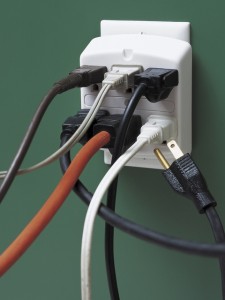When you send your son into the world to make his fortune, you may be worried about his ability to function on his own. You want him to be able to stretch his wings and fly. When he makes his first solo voyage, whether he’s going to school or working an internship, you hope he will learn and grow and gain in confidence as he exercises his abilities and learns new skills. You hope that his experiences will empower him to be his own man, trail his own path and be independent. You hope that he becomes successful and fulfilled and ultimately happy.
Sometimes, young men are not fully prepared to face the world with its complexities and challenges (nobody really is) and you worry about him. If your son or daughter is part of this Millennial Generation, sometimes referred to as the Boomerang Generation, they are far more likely to move back home than you might think. So, before you start turning their old room into the new arts & crafts room, you might want to know the likelihood of your kids moving back home. It’s estimated that 28% of the Millennial Generation is likely to move home at some point. Parents often use the tough economic environment as the primary reason for this occurrence, but there is something more than just the simple case of economic hardship at play here.
There’s a major difference between the son who moves home to get his feet back under him before heading out again and the son who moves home because he was uncomfortable with the idea of making it on his own. After all, it’s far easier to have Mom and Dad take care of him than it is for him to take care of himself. For these Millennials, facing and overcoming problems isn’t what life is about, getting their parents to face and overcome their problems is what life is about. Young men and women who fall into this category fit the true definition of dependent; requiring someone or something for financial, emotional or other support.
For parents who face the prospect of having a Millennial son or daughter move back home, this can be a bewildering and often frustrating experience. You may wonder what you can do to help them. While there are no cut and dry answers, there is one specific concept that Forte Strong teaches our parents to help them through the process of ending their child’s unhealthy dependency on them.
Time to detach the umbilical cord
Dr. Dan Sanderson, Forte Strong’s Clinical Psychologist, gives a vivid analogy that really helps parents understand how their son will often seek to stay dependent on others, particularly their parents, when real-life responsibilities start knocking on their door.
 It goes something like this: A young man who is dependent is like a human battery who walks around with an invisible umbilical cord in his hand, looking for someone to plug into. When he finds a willing host (most often family), he quickly attaches and sucks all the energy out of them. Eventually their host gets tired of constantly feeding their emotional and physical needs and begins to detach from the cord. The dependent young man begins to see what’s happening and instead of trying to become independent and provide for his own needs, he will instead go and try to find a new host. Sometimes, he will even go back to an old host and try to plug back in.
It goes something like this: A young man who is dependent is like a human battery who walks around with an invisible umbilical cord in his hand, looking for someone to plug into. When he finds a willing host (most often family), he quickly attaches and sucks all the energy out of them. Eventually their host gets tired of constantly feeding their emotional and physical needs and begins to detach from the cord. The dependent young man begins to see what’s happening and instead of trying to become independent and provide for his own needs, he will instead go and try to find a new host. Sometimes, he will even go back to an old host and try to plug back in.
As our students at Forte Strong gradually detach the umbilical cord from the outside support of their parents, they begin the process of learning to climb on their own and as a result they begin to feel uncomfortable and afraid and they desperately want to go back to the care-free life where someone is there constantly taking care of their every need and want; they want their umbilical cord back! In other words, they don’t yet have the skills and experience necessary to feel confident on their own. In our experience, these young men will almost always turn back to their parents to make it all better: they want to plug back in. It’s so important for parents to respond appropriately at this crucial time during their son’s development to experience long-term success.
While it was right and appropriate for these young men to turn to their parents in their childhood years, that time has now passed. That is why it’s so important that parents remain encouraging and supportive of their son’s efforts to gain independence and at the same time making sure that the umbilical cord remains unattached. By far, the best way parents can help their dependent son is to ensure their son is not able to shift his natural responsibility to take care of himself, back onto them. Easier said then done, I know. When parents have a strong understanding of the role they play when it comes to enabling their son’s behavior, they can more easily understand what needs to be done in the future to prevent it.
Just like young birds learn to fly out of the nest to independence, parents need to trust that their children are capable of making that flight for themselves with an understanding that part of learning to fly is making mistakes. But, as you learn to let him make those mistakes without rescuing him or making excuses for him, you will be amazed at how quickly he learns to fly on his own to true independence.
References
Kristof, K. (2013, October 24). They’re back: 4 ways to cope with the move-home generation.CBS Money Watch. Retrieved March 3, 2015, from http://www.cbsnews.com/news/theyre-back-4-ways-to-cope-with-the-move-home-generation/
ABOUT THE AUTHOR
Eric Hatton has spent most of the last six years working as a field staff in wilderness therapy where he coached students on primitive fire skills, making and setting traps and other important wilderness skills. He also coached staff as they learned leadership skills and as they learned to disrupt dysfunctional behavior in the students. Eric loves brainstorming with people. He loves to help people organize their thoughts and change their dreams and desires into tangible, achievable goals. He loves to help people to discover their passions and to help them find ways to use their passions to realize their goals. He is passionate about building great teams and organizations and helping others succeed.


